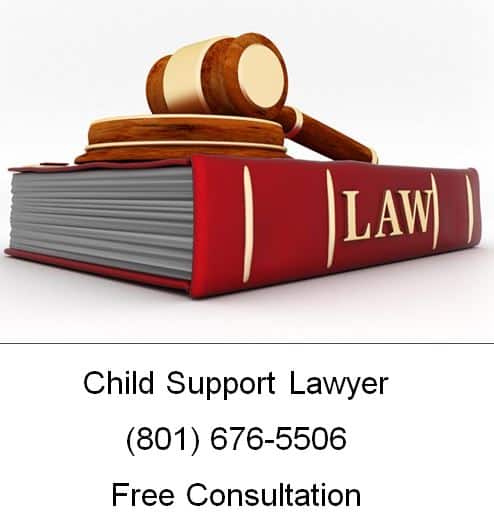Monday, 31 December 2018
Sunday, 30 December 2018
Saturday, 29 December 2018
Friday, 28 December 2018
Thursday, 27 December 2018
Wednesday, 26 December 2018
Tuesday, 25 December 2018
Monday, 24 December 2018
Sunday, 23 December 2018
Saturday, 22 December 2018
Friday, 21 December 2018
SEC Charges Former Staffer with Securities Fraud
The Securities and Exchange Commission charged a former employee with securities fraud in connection with his trading of options and other securities.
The SEC’s complaint alleges that David R. Humphrey, who worked at the SEC from 1998 to 2014, concealed his personal trading from the SEC’s ethics office and later misrepresented his trading activities to the SEC’s Office of Inspector General when questioned during an investigation.
“As alleged in our complaint, Humphrey never sought pre-clearance for his prohibited options trades and he filed forms that falsely represented his securities holdings,” said Gerald W. Hodgkins, Associate Director in the SEC’s Division of Enforcement.
SEC employees are subject to rigorous rules regarding securities transactions to guard against even the appearance of using public office for private gain. The ethics rules specifically prohibit trading in options or derivatives. The rules also require staff to disclose their securities holdings and transactions to the agency’s ethics office in annual filings.
According to the SEC’s complaint, Humphrey violated the rules by engaging in transactions involving derivatives, failing to obtain pre-clearance before trading non-prohibited securities, and failing to hold securities for the required period.
The SEC’s complaint charges Humphrey with violating Section 17(a) of the Securities Act and Section 10(b) of the Securities Exchange Act. Humphrey has agreed to settle the charges and pay $51,917 in disgorgement of profits made in the improper trades plus $4,774 in interest and a $51,917 penalty. Humphrey also agreed to be permanently suspended from appearing and practicing before the SEC as an accountant, which includes not participating in the financial reporting or audits of public companies. The settlement is subject to court approval.
In a parallel action, the Department of Justice today announced that Humphrey has pleaded guilty to criminal charges stemming from his false federal filings.
The SEC’s investigation was conducted by Gary M. Zinkgraf and Tom Bednar, and the case was supervised by Jeffrey Weiss. The SEC appreciates the assistance of the U.S. Department of Justice’s Fraud Section.
SEC CHARGES BROKERAGE FIRM WITH FAILING TO COMPLY WITH ANTI-MONEY LAUNDERING LAWS
The Securities and Exchange Commission today charged a Salt Lake City-based brokerage firm with securities law violations related to its alleged practice of clearing transactions for microcap stocks that were used in manipulative schemes to harm investors.
To help detect potential securities law and money laundering violations, broker-dealers are required to file Suspicious Activity Reports (SARs) that describe suspicious transactions that take place through their firms. The SEC’s complaint alleges that Alpine Securities Corporation routinely and systematically failed to file SARs for stock transactions that it flagged as suspicious. When it did file SARs, Alpine Securities allegedly frequently omitted the very information that formed the bases for Alpine knowing, suspecting, or having reason to suspect that a transaction was suspicious. As noted in the complaint, guidance for preparing SARs from the U.S. Treasury Department’s Financial Crimes Enforcement Network (FinCEN) clearly states that “explaining why the transaction is suspicious is critical.”
“As alleged in our complaint, by failing to file SARs, Alpine Securities deprived regulators and law enforcement of critically important information often related to trades in microcap securities used to investigate potentially serious misconduct,” said Julie Lutz, Director of the SEC’s Denver Regional Office.
The SEC’s complaint charges Alpine Securities with thousands of violations of Section 17(a) of the Securities Exchange Act of 1934 and Rule 17a-8.
The SEC’s investigation was conducted by L. James Lyman and Ian S. Karpel of the Denver Regional Office with assistance from Daniel J. Goldberg, Damon Reed, and Andrae S. Eccles of the Enforcement Division’s Bank Secrecy Act Review Group. The litigation will be led by Zachary T. Carlyle and Terry Miller and supervised by Gregory A. Kasper. The SEC’s examination that led to the investigation was conducted by Denise S. Saxon, Phil Perrone, and Joni S. Marks with assistance from Lisa Byington. The case involves the Enforcement Division’s Broker-Dealer Task Force, which is led by Antonia Chion and Andrew M. Calamari and focuses on current issues and practices within the broker-dealer community, developing national initiatives for potential investigations.
The SEC appreciates the assistance of the U.S. Attorney’s Office for the Southern District of Utah, the U.S. Department of Homeland Security, FinCEN, and the Financial Industry Regulatory Authority.
WHISTLEBLOWER AWARD OF MORE THAN HALF-MILLION DOLLARS FOR COMPANY INSIDER
The Securities and Exchange Commission today announced that a company insider has earned a whistleblower award of more than $500,000 for reporting information that prompted an SEC investigation into well-hidden misconduct that resulted in an SEC enforcement action.
“This company employee saw something wrong and did the right thing by reporting what turned out to be hard-to-detect violations of the securities laws,” said Jane Norberg, Chief of the SEC’s Office of the Whistleblower. “Company insiders are in a unique position to provide specific information that allows us to better protect investors and the marketplace. We encourage insiders with information to bring it to our attention.”
The whistleblower award is the second announced by the SEC in the past week. Approximately $154 million has now been awarded to 44 whistleblowers who voluntarily provided the SEC with original and useful information that led to a successful enforcement action.
By law, the SEC protects the confidentiality of whistleblowers and does not disclose information that might directly or indirectly reveal a whistleblower’s identity. Whistleblowers may be eligible for an award when they voluntarily provide the SEC with original, timely, and credible information that leads to a successful enforcement action.
Whistleblower awards can range from 10 percent to 30 percent of the money collected when the monetary sanctions exceed $1 million. All payments are made out of an investor protection fund established by Congress that is financed entirely through monetary sanctions paid to the SEC by securities law violators.
SEC Lawyer Free Consultation
If you need help with an SEC matter or securities law issue, call Ascent Law for your free consultation (801) 676-5506. We want to help you.
8833 S. Redwood Road, Suite C
West Jordan, Utah
84088 United States
Telephone: (801) 676-5506
Recent Posts
Personal Representative of the Estate
Vacation and Sick Leave in Your Business
Misteps We See In Utah Divorces
from Michael Anderson https://www.ascentlawfirm.com/sec-charges-former-staffer-with-securities-fraud/
from
https://goofew.wordpress.com/2018/12/21/sec-charges-former-staffer-with-securities-fraud/
Thursday, 20 December 2018
Misteps We See in Utah Divorces
So you’ve decided to get a divorce and think you know what to do. But time and time again, people make the same mistakes and suffer because of them. Keeping in mind some of the following tips throughout your divorce can benefit you both emotionally and financially.
Here are some of the most misteps we’ve seen during a divorce:
Revenge – going out of your way to be vindictive. Many people have been hurt by their spouses and use divorce as a way to get back at them. A great deal of time and energy can be wasted if you allow anger and resentment to influence your actions in a divorce proceeding.
Refusing mediation – or delaying it. Rather than immediately embarking on an adversarial divorce to attack your spouse, it can be helpful to consider mediation. Even if you and your spouse aren’t getting along, the assistance of a mediator could be what you need to navigate a smoother road towards separation. The mediator can help you understand which of your demands are reasonable and which are not customarily sustainable.
Involving children in your divorce is always a mistep. One of the biggest mistakes parents make is involving their kids in a child custody battle. Children should be left out of all arguments between adults. Making kids choose sides can have negative effects on their emotional well-being and create long-standing damage you will regret.
Ignoring health concerns – get the help you need now. A divorce can be a stressful time of your life. It is important that you don’t neglect your own health during the proceedings. Eat well, exercise, and if you find yourself suffering from depression, contact a professional for help.
Using Your Child as a Weapon
Even in the best of circumstances, divorce is usually hard on children. But a manipulative parent can force children to choose sides through hostile aggressive parenting. This type of action can lead to what is known as parental alienation syndrome — a situation in which one parent turns a child against the other parent.
Actions that constitute aggressive parenting
Any vilifying words or isolating actions the parent employs to alienate your children from you may be considered hostile, aggressive parenting. Some tactics the parent might use include:
- Denigrating, disparaging and belittling you in front of your children
- Making malicious and untruthful comments about you to your children
- Refusing to speak to you
- Withholding messages you have sent to your children
- Not answering the phone when you call
- Suggesting to your children that they should refuse visitation time with you
-
- Manipulating your children’s time to interfere with your opportunities to see them
- Excluding you from important events — such as the children’s birthday parties or school functions
- Discouraging your children from communicating with you
- Failing to inform you about crucial issues in your children’s lives
- Encouraging your children to treat you with disrespect
- Giving your children the impression that you don’t matter or don’t love them
Preparing for a Child Custody Evaluation
You and your spouse have argued incessantly over who should get custody of your children. You’ve tried negotiations and mediations and cannot reach an agreement. You have now asked a judge to decide. In Utah, the court is instructed to decide on a custody and visitation arrangement that is in the child’s best interest. A child custody evaluation is designed to assist the court in making this crucial ruling. Conducted by a psychiatrist, psychologist or social worker, judges typically rely heavily on the recommendations made in the custody evaluations.
What to expect from the child custody evaluation
The primary objective of the evaluation is to offer an opinion — backed by the evidence collected during an intensive investigation — as to which parent can best serve the needs of the children. The custody evaluator considers relevant issues, such as family dynamics, parental interactions, cultural issues, parenting attributes and the children’s individual educational, physical and psychological needs. The assessment may include:
- Interviewing each parent
- Talking to family members
- Meeting with educational, health care and childcare providers
- Reviewing relevant documents
- Evaluating the child
- Conducting other appropriate tasks
The custody evaluator will provide the detailed report to the judge or court commissioner and may be called as a witness to testify at your custody hearing.
Divorce Lawyer Free Consultation
If you have a question about divorce law or if you need to start or defend against a divorce case in Utah call Ascent Law at (801) 676-5506. We will help you.
8833 S. Redwood Road, Suite C
West Jordan, Utah
84088 United States
Telephone: (801) 676-5506
Recent Posts
Do You Need To Report Child Abuse
Missing Chapter 13 Bankruptcy Payments
What is a Brain Injury and Why Do I Need a Lawyer?
Personal Representative of the Estate
Vacation and Sick Leave In Your Business
from Michael Anderson https://www.ascentlawfirm.com/misteps-we-see-in-utah-divorces/
from
https://goofew.wordpress.com/2018/12/21/misteps-we-see-in-utah-divorces/
Vacation and Sick Leave in Your Business
Depending on what state you live in, the law may or may not require employers to offer vacation time and sick leave to employees. However, even if not required to do so, many employers provide these benefits to full-time workers as a way to retain employees and to provide job satisfaction. In addition, employees with health care coverage typically call in sick less often.
If the law does not require vacation and sick leave, then these benefits are established by agreement between an employer and an employee. Employers can define the terms of these benefits in an employee handbook, but must be aware of certain legal implications if they do offer such benefits.
This article briefly summarizes how the law addresses employee benefits such as paid vacations and sick leave.
The Law of Paid Vacation
If providing vacation time to employees, an employer should:
- Apply consistent accrual standards for each employee: Consistent application of accrual methods will prevent discrimination claims.
- Abide by state restrictions: While states may not mandate vacation benefits, if an employer does provide paid vacation time, there may be certain regulations governing the benefits offerred. For Example, many states have laws that apply to the accrual of vacation time, the class of employees that an employer can exclude from the benefit, and whether an employer can tell an employee when to take vacation time.
In some states, because an employee earns vacation time as work hours accumulate, vacation pay is a form of wages. Depending on the employer’s plan, vacation time, for example, may accumulate on a daily or weekly basis. Consequently, earned and unused vacation time must be paid to the employee upon termination of employment, unless a collective bargaining agreement provides otherwise.
Sick Leave Under the Law
If providing sick leave, an employer should:
- Describe the terms of sick leave in an employee handbook: If the employer will require the employee to provide a doctor’s note when taking sick leave, this term should be included in the handbook.
- Decide whether to pay employees for sick leave when employment ends: In most states, an employer is not required to pay the employee for accrued sick leave when a job ends, but an employer can establish a policy for doing so.
Some municipalities, but not all, require employers to provide a certain number of paid sick days. Make sure you check the laws and ordinances in your jurisdiction before drafting a sick leave policy. Call us to discuss what is required of your business. Keep in mind that you can also have a policy manual and give more sick leave than is required under the law.
Law of Paid Time Off
Many larger companies have combined sick leave and vacation into one lump sum called Paid Time Off (PTO). Under this system, employees receive a certain number of days for vacation, sick leave, and personal time. For example, if a company grants 10 days of vacation, 5 sick days, and 2 personal days, the employee would have a total of 17 days of paid time off.
Many companies have converted to this method to prevent abuse of sick time and to provide employees with flexibility to take time off when desired. Upon termination of employment, the employer must pay the employee for unused paid time off, including vacation, sick leave, and personal days.
Unpaid Leave Under FMLA
The federal Family and Medical Leave Act (FMLA) allows qualified employees to take up to 12 weeks of unpaid leave under certain circumstances. A qualified employee is an employee who has worked for the employer for at least a year and has worked at least 1,250 hours during the previous 12 months. The act applies to employers with at least 50 employees within a 75-mile radius. The employee can take unpaid leave:
- To care for a newborn, an adopted child, or a child placed in the employee’s home by the foster care system during the first year of arrival
- To care for an immediate family member (spouse, child, parent) with a serious mental or physical health condition
- Because the employee’s suffers from a serious mental or physical condition that prevents the employee from working
In addition, many states provide additional benefits through their own family and medical leave laws.
Employer Lawyer Free Consultation
When you need to speak with lawyer about paid leave or sick leave in your business, call Ascent Law for your free consultation (801) 676-5506. We want to help you.
8833 S. Redwood Road, Suite C
West Jordan, Utah
84088 United States
Telephone: (801) 676-5506
Recent Posts
Do You Need To Report Child Abuse?
Who Gets the House in Divorce?
Personal Representative of the Estate
from Michael Anderson https://www.ascentlawfirm.com/vacation-and-sick-leave-in-your-business/
from
https://goofew.wordpress.com/2018/12/20/vacation-and-sick-leave-in-your-business/
Wednesday, 19 December 2018
Personal Representative of the Estate
When dealing with end of life issues, people often get overwhelmed. Whether you’re deciding who should be your personal representative (also called an executor or executrix of your estate), or if you’ve been named the personal representative of a will, it doesn’t need to be complex or stressful. Here are some simple guidelines.
Who Can Be an Personal representative of a Will?
An personal representative is someone named in your will, or appointed by the court, who is given the legal responsibility to take care of any remaining financial obligations. Typical duties include:
Distributing assets according to the will, Maintaining property until the estate is settled (e.g., upkeep of a house), making court appearances for the estate with the lawyer and paying the bills and taxes for the estate.
The money to perform these duties comes from the estate itself. If the will is complex, or if significant court time is required, an personal representative may want to hire a lawyer to assist in the handling of the estate, also at the estate’s expense.
Who Should Be My Personal representative?
Typically, you can choose almost anyone as the personal representative of a will (but see below for restrictions). Most wills are fairly straightforward, and no legal or financial knowledge is typically required. As a result the most common personal representatives are, spouses, children, or siblings.
The key qualities that an personal representative needs are honesty, organization and communication. Honesty as a virtue speaks for itself. People often overlook, however, the necessity of being organized and the ability to communicate. The distribution of the will can become a mess if it is handled by someone who simply lacks these key qualities.
What Qualities Should I Consider When Choosing The Personal Representative?
In addition to honesty, organization and communication, other important considerations should also play into who you choose as your personal representative. For instance, family dynamics are extremely important in end of life issues. Who you choose can lead to in-family squabbling and will contests, so carefully consider the impact of who you choose. Whether they should or not, people read into your decisions and assume you are making judgments regarding their worthiness (e.g., naming the youngest child as the personal representative of a will because he or she is a lawyer or accountant may still be construed as favoritism).
Another basic consideration is the personal representative’s location. Things such as court appearances, checking mail and property maintenance can be considerably more difficult if the personal representative does not live near where the majority of the assets are located.
Typically, it is often helpful to select someone who stands to inherit a significant amount of property under the will. This is helpful because self-interest can help ensure that the property is well maintained, and is handled in a timely manner.
If possible during your lifetime, discuss being the personal representative of a will with the person you wish to name in your will. It is important that the person be willing to serve as the personal representative and for that person to understand where your records are kept.
Should I Name an Alternative Personal Representative?
Yes. Be aware that whoever you named as your personal representative, even if they agreed to be your personal representative during life, may decline the responsibility when it is time. For this reason alone, it is helpful to name alternative personal representatives. If you do not and your original personal representative declines the responsibility, the court will choose an personal representative for you. The less decision making you leave to a court the better, so name alternative personal representatives in your will.
Are There Any Restrictions on Who I Can Name as My Personal Representative?
Yes. Generally anyone can be your personal representative. The major exceptions to this are that children under the age of 18 typically cannot be personal representatives. Felons typically cannot be personal representatives. Some states have limitations on out-of-state personal representatives, requiring them to also be primary beneficiaries so check your state’s laws. Some states require out-of-state personal representatives to obtain a bond to insure the estate against wrongful use, so ensure that whoever you choose can cover such a bond and check your state’s laws
Each state’s laws are different, so always look into your state’s laws before naming an personal representative.
Should my Personal Representative Hire Lawyers or Other Professionals?
Yes. Many wills are fairly routine and simple, and require no specialized knowledge. Even if you go through probate court, the paperwork required does not require a legal degree. On the other hand, if there are disputes, complex property issues, significant tax liability, etc., an personal representative should seriously consider getting professional help in the form of a lawyer, or depending on the issue, an accountant. Finally, personal representatives shouldn’t be afraid to ask the court for assistance; if the judge feels that it is necessary, he or she will almost assuredly advise you to get a lawyer.
Estate Lawyer Free Consultation
When you need help with estate planning or choosing your executor, call Ascent Law for your free consultation (801) 676-5506. We want to help you.
8833 S. Redwood Road, Suite C
West Jordan, Utah
84088 United States
Telephone: (801) 676-5506
Recent Posts
Child Support Collection From Social Security
Fruit and Vegetable Dispute Resolution Corporation
Do You Need to Report Child Abuse?
from Michael Anderson https://www.ascentlawfirm.com/personal-representative-of-the-estate/
from
https://goofew.wordpress.com/2018/12/20/personal-representative-of-the-estate/
Do You Need To Report Child Abuse?
All states require that if certain defined persons know or suspect that child abuse is going on, they report the abuse to the authorities. Reports of abuse and actual abuse can affect child custody in Utah. These mandatory reporting laws were instituted to help promote awareness of child abuse and early intervention, if possible. To that effect, the laws make reporting quite straightforward.
In most states, reports are anonymous and there’s generally no reason to be hesitant about making a report if you genuinely suspect that child abuse is occurring. The laws of most states don’t punish people for making a good faith effort to report child abuse. A reporter might, however, be punished if he or she was reporting child abuse without any basis for such a belief, and if the report was motivated entirely by a desire to get the reported person in trouble with the law – known as malice.
Mandatory Reporters
In most states, professions that engage in regular contact with children are listed as mandatory reporters. In at least 18 states, however, there are no listed mandatory reporters –anyone and everyone who knows or suspects that child abuse has occurred is required by law to make a report.
In Utah, we have the Child Abuse or Neglect Reporting Requirement in Utah Code 62A-4a-401 and Utah Code 53E-6-701. Under these code sections, if you are a nurse, or doctor, or police officer, or law enforcement you should be reporting abuse. If you are a member of the clergy and are bound by the church doctrine or practice to maintain confidentiality of a confession, you’re not required to report.
In other states with defined mandatory reporter lists, however, the following professions are frequently listed:
- Day care workers
- Dental assistants and hygienists
- Doctors’ office staff persons
- Emergency medical technicians
- Family practitioners
- Foster care workers
- Hospital personnel
- Medical examiners
- Nurse practitioners
- Police officers
- Practical nurses
- Psychiatrists and psychologists
- Registered nurses
- School administrators, advisors, and paraprofessionals
- Social workers
- Teachers and teachers’ aides
You can find a list of mandatory reporters in your particular state. If you would like to learn more about whether your profession is a defined mandatory reporting profession in your state and what duties you may have been ascribed, please contact a qualified attorney or speak with your institutional administrators.
Mandatory Reporting of Child Abuse and Permissive Reporting of abuse
Though the states may differ with regard to who is a mandatory reporter, in every state everyone is permitted to report child abuse. A person who reports child abuse voluntarily is known as a permissive reporter. To better understand the difference, consider the following situation.
Suppose that you’re a homemaker, and you’re aware of child abuse occurring next door at the neighbor’s house. If you reside in a state where there’s a defined list of mandatory reporters (various professions), then you wouldn’t necessarily have to report this abuse. In other words, you wouldn’t be punished for failing to report. On the other hand, if you resided in a state where all persons are mandatory reporters (no matter their profession), then you would have to report the neighboring child abuse or you would be subject to possible criminal penalties (most likely a misdemeanor offense).
But what if you actually wanted to report the abuse? That’s perfectly okay, and even encouraged. Even if you’re not a mandatory reporter, you can report the abuse to local authorities. As a voluntary reporter you’ll also enjoy immunity from liability for a good faith report of suspected child abuse.
Child Custody Lawyer Free Consultation
If you have a question about child custody question or if you need help with custody, please call Ascent Law at (801) 676-5506. We will help you.
8833 S. Redwood Road, Suite C
West Jordan, Utah
84088 United States
Telephone: (801) 676-5506
Recent Posts
Child Support Collection From Social Security
Responding to a Petition for Child Support
from Michael Anderson https://www.ascentlawfirm.com/do-you-need-to-report-child-abuse/
from
https://goofew.wordpress.com/2018/12/19/do-you-need-to-report-child-abuse/
Tuesday, 18 December 2018
Business Valuation Lawyer
If you’re thinking about selling your business, you need to know the different business valuation methods in order to get the best price possible.
First of all, you’ll need to know how much your business is worth so that you have an idea of where to set the asking price. With the rise of Internet databases and more readily available information on comparable business sales, valuing a business involves more accuracy and less guess work, but it’s still not a precise science and there is lots of room for divergent valuations.
There are several different methods of valuating a business, each of which takes a different perspective when looking at the business’s value. While there’s no “right” valuation method, if you calculate poorly, or decide to use your own methodology, you could certainly end up with several “wrong” prices and end up with the short end of the stick.
Business Valuation Methods
The three most common and basic approaches to business valuation are the following:
- The Income-based Approach: This approach is most commonly used, and focuses on the amount of money a business generates for its owner. This method looks to the cash that flows into the business and accounts for things such as debt owed.
- The Market-based Approach: This approach looks to other businesses in the same or similar industry that have been sold and bases your sale price on the average of other business. This approach can be risky, however, because it may not capture the true value of your business. For example, perhaps the other businesses have sold at low prices because their owners failed to value the business properly, resulting in a domino effect on businesses in the area.
- The Asset-based Approach: This approach simply looks at the individual assets and bases the price of the business on the fair market value of the assets. The drawback of this method is that it doesn’t account adequately for intangible assets such as a business’s goodwill or forecasts of future revenue.
The Method of Multiple of Discretionary Earnings
The income based approach has several subsets that appraisers use to valuate a business. The most common, particularly for small businesses, is called the “Multiple of Discretionary Earnings” method. Discretionary earnings are simply your pretax earnings, salary, depreciation, and other expenses.
There are two steps in the Multiple of Discretionary Earnings method. Step one is to calculate the business’ discretionary earnings for the next several years. You can take your most recent earnings and estimate what’s likely to happen going forward or you can average your last several years and use that figure.
Step two is to multiply your figure by anywhere from 0 to 3. An average for most small businesses would be between 1.5 (higher for businesses that perform above average). This multiplied figure accounts for the tangible business assets that the business will use going forward. For example, if you calculate your discretionary earnings to be $50,000 and the business performs above average, you might multiply the figure by two, to reach a value of $100,000.
Other Business Valuation Factors to Consider
While the above methods factor in tangible assets and revenue forecasts, don’t forget about intangible issues such as customer goodwill (the customer loyalty and good reputation the business has engendered over the years). Assuming you have a high level of goodwill, you should be comfortable asking for the high end of your price range.
There are other factors individual to business owners. If you need cash badly and simply want to sell, you’ll probably have to be content with a lower price and quick sale. On the other hand, if selling to someone who shares your vision and affinity for the business is important, you may have to wait for the right buyer. Additionally, depending on the market and economic climate, you may be able to sell for higher or be forced to sell at lower than fair market value.
Business Valuation Lawyer Free Consultation
When you need help from a business valuation lawyer, please call Ascent Law for your free consultation (801) 676-5506. We want to help you.
8833 S. Redwood Road, Suite C
West Jordan, Utah
84088 United States
Telephone: (801) 676-5506
Recent Posts
Transfer on Death Beneficiary for Property
Child Support Collection from Social Security
from Michael Anderson https://www.ascentlawfirm.com/business-valuation-lawyer/
from
https://goofew.wordpress.com/2018/12/19/business-valuation-lawyer/
Child Support Collection from Social Security
When your former spouse becomes delinquent with child support payments, you may be wondering how you can get the money you are owed. One route that isn’t normally taken, but is still a possibility, is to garnish Social Security benefits.
First, it’s important to determine what kind of Social Security benefits your former partner receives. You will not be able to collect your payments if he or she receives supplemental security income (SSI), because it is considered a welfare benefit, not an earned benefit. Other types of Social Security benefits, however, could be subject to wage garnishment if you file a request in your local Social Security office.
For the agency to garnish those benefits, you will need to have a judge issue an income withholding order. This means that you must have already proved in court that your ex has been delinquent on their payments. Once your judge has sent this order to your local Social Security office, the people there will then enter your case data into their system and start withholding child support payments from your former spouse’s Social Security benefits. Make sure you tell your child support lawyers about the need to collect child support from social security benefits. Sometimes, if you don’t have the specific language in the child support order about collecting it from social security; the social security office won’t withhold it and you’ll have to go back to court!
If your ex-spouse is not currently receiving any benefit payments, your order for garnishment of those payments will stay on file with the Social Security office, and as soon as he or she begins collecting them again, the deductions will continue.
Federal law dictates that Social Security offices can only withhold up to 65 percent of the monthly payments that your ex receives.
Friends During a Divorce
One of the more difficult parts of a divorce is how you manage the friendships you share with your former spouse. Your friends may feel like they have to choose one of you over the other. If they do try to maintain friendships with each spouse, it can take some careful social planning to avoid awkward situations.
It’s possible to maintain shared friendships after your divorce. Below are some tips to help you accomplish that:
You should try to talk about it with your spouse and discuss your concerns with your spouse and figure out what an ideal situation would look like moving forward. Which relationships would each of you prioritize?
Role play how you think you will feel about being around your former spouse after your divorce. It can help to broach this subject with your spouse during the divorce process to mitigate any awkwardness that could occur in social situations.
Talk to everyone by being forthcoming about your struggles with your friends, and help them become more comfortable with the idea of maintaining relationships with both you and your former spouse if they wish to do so.
It is possible that some friendships will end — especially those that involve your former spouse’s closest friends. There is no doubt that this can be painful, but if you accept this fact from the start, you can take some of the sting away when it comes to pass.
It might help to set some parameters or ground rules for how you will move forward in your shared friendships. For example, you should never try to use your friends as weapons against each other, and avoid speaking ill of your former partner in front of the friends you share.
Child Support Lawyer Free Consultation
If you have a question about child support, please call Ascent Law at (801) 676-5506 for your free consultation. We want to help you.
8833 S. Redwood Road, Suite C
West Jordan, Utah
84088 United States
Telephone: (801) 676-5506
Recent Posts
Transfer on Death Beneficiary for Property
from Michael Anderson https://www.ascentlawfirm.com/child-support-collection-from-social-security/
from
https://goofew.wordpress.com/2018/12/18/child-support-collection-from-social-security/
Monday, 17 December 2018
Invention Law
You don’t have to be famous to call yourself an inventor in today’s world. I’m telling you, as an intellectual property lawyer, most people who are “creatives” are inventors. I’m not kidding. If you like to create, then you can take your ideas and some perseverance can invent an amazing product or even some life-saving device.
Legal Invention Strategies
When brilliance strikes and you come up with a great idea, create a record of invention before going any further with it. The record of invention should be written down and should include things like a clear description of the idea, the date, your signature, and the signatures of two people you trust who have “witnessed and understood” your invention and the dates they sign.
Build a prototype as soon as you can to transform the idea into a physical object.
Be discreet. Do not talk about your invention with people who are not bound by a confidentiality agreement.
Have a qualified lawyer do a patent search for you. Keep a file for your invention that contains items and information you and your lawyer will need while you prepare your patent application. Work with an experienced lawyer who is licensed by the Patent and Trademark Office and does patent work for a living. Start exploring and thinking about how you will market your invention.
Keep good, complete, and accurate written records. A written lab book or log, kept up to date as you work on your invention, that documents each day you did something, describes the efforts you have made in taking your invention from idea to reality (including test results, experiments, modifications). You can also have two witnesses sign and date your record book stating that they have “witnessed and understood” the work you have done to build and test your invention. Keep copies of all correspondence- emails as well- and any receipts relating to your invention.
Will it sell? One rule to determine whether your invention will sell well is that the total sales will be at least twenty times the cost of inventing and patenting it. Include in your cost calculation the cost of filing fees, hiring a lawyer to help with your patent filing, and the person who prepares the drawings of your creation.
Assess whether you will be able to get a patent on your invention. What is the prior art, if any. If you are improving on something that has already been patented, is your invention a new physical feature, a combination of prior separate features, or a new use of a prior feature? Does your invention fall into one of the five classes of items that may be patentable? That is, is it a process, machine, an “article of manufacture,” “compositions of matter,” or a new use of any of those items? If you are improving something that has already been patented, is your invention not obvious? Does your invention produce a new and unexpected result? You must think through these things carefully. Talk to us if you have questions.
Invention Lawyer Free Consultation
When you need legal help with your invention, call Ascent Law for your free consultation (801) 676-5506. We want to help you.
8833 S. Redwood Road, Suite C
West Jordan, Utah
84088 United States
Telephone: (801) 676-5506
Recent Posts
Optimize Your Asset Protection
Transfer on Death Beneficiary For Property
from Michael Anderson https://www.ascentlawfirm.com/invention-law/
from
https://goofew.wordpress.com/2018/12/18/invention-law/
Transfer on Death Beneficiary for Property
Some people prefer to avoid probate when it comes to estate planning because it can be expensive and time-consuming. Fortunately, there are several ways to transfer property without going through the probate process. In addition to living trusts and joint tenancies, a transfer-on-death deed is one of the ways to transfer property after your death without probate. Lean now whether transfer-on-death beneficiary is the right choice for you.
What Is a Transfer-on-Death Beneficiary for Property?
You can create a transfer-on-death beneficiary deed (also called a beneficiary deed) to transfer property upon your death to a beneficiary you name in the deed. The deed should state the following details: (1) your name as the owner of the property, (2) property description, and (3) the name of the beneficiary(s). The deed should also explicitly state that it won’t become effective until you pass away.
To create a valid transfer-on-death deed, you must properly sign, execute, and record the deed. After drafting the deed, you must sign the deed in front of a notary public. Then, you need to record the deed with the local county office. If the owner fails to sign or record the deed, the deed is deemed invalid. Once the deed is created, you have full power over the property during your lifetime. Thus, you can revoke the deed anytime before you pass away through any methods of revocation or execution of subsequent deed.
Advantage of Transfer-on-Death Beneficiary Deeds
There are several benefits to transfer-on-death deeds. First, you can change the beneficiary at anytime during your lifetime. The beneficiary does not have any legal interest in the property until you pass away, so the beneficiary’s creditors won’t be able to reach the property until the deed becomes effective. Second, expenses related to the transfer-on-death deed are less than the ones related to other methods of transferring property, such as revocable trusts and wills. Third, probate is not required to transfer the property under transfer-on-death beneficiary for property. Avoiding probate is a huge benefit because probate process is usually expensive and time-consuming.
Disadvantage of Transfer-on-Death Beneficiary Deeds
Because transfer-on-death beneficiary deeds do not become effective until you pass away, someone can challenge the validity of the deed after you die. For example, someone can argue that you lacked capacity to create a valid deed. Or, beneficiaries and family members can sue each other to take the property entirely. In this case, a court proceeding may be required to resolve the issue.
Another disadvantage is that the beneficiary won’t be able to sell the property immediately upon the transfer. As opposed to joint tenancy with right of survivorship, transfer-on-death beneficiary for property does not automatically transfer the title to the beneficiary. Most states give people time to challenge the title on the property for a certain amount of time.
State Laws on Transfer on Death Beneficiary for Property
When you name a beneficiary, who will obtain title to the property upon your death, you must do so according to the applicable state law. Today, the majority of the states allow transfer-on-death beneficiary deeds to leave property to someone after your death. However, keep in mind, some states do not allow transfer-on-death deeds at all. Please call us to go over these issues when it comes to Utah property.
Estate Planning Free Consultation
When you’re ready to go over your estate and plan it right, call Ascent Law for your free consultation (801) 676-5506. We want to help you.
8833 S. Redwood Road, Suite C
West Jordan, Utah
84088 United States
Telephone: (801) 676-5506
Recent Posts
from Michael Anderson https://www.ascentlawfirm.com/transfer-on-death-beneficiary-for-property/
from
https://goofew.wordpress.com/2018/12/17/transfer-on-death-beneficiary-for-property/
Sunday, 16 December 2018
Business Entity Structures
When you start a business, you will have to decide which business structure to create. If you’re simply in business for yourself and don’t plan on hiring employees, you may be able to get by as a sole proprietorship. However, large business entities generally incorporate, which provides certain benefits in terms of liability protection and the complexity needed for a large business. No matter what you do, you should always have some business lawyers review what it is you are setting up to make sure it’s done correctly with your end goal in mind.
Each business structure has its pros cons, and since every business has unique needs and goals, you need to do your research before choosing. The following is an overview of the various types of business structures, which include sole proprietorships, partnerships (both general and limited), limited liability companies (LLCs), corporations, or nonprofits.
Sole Proprietorships
A sole proprietorship is perhaps the simplest of all the different types of business structures. Unlike LLCs and corporations, there are no papers to file and no fees to pay in order to set up a sole proprietorship. You are the sole owner of your business, and you simply have to begin business operations in order to create a sole proprietorship.
In terms of the legal entities involved in a sole proprietorship, you and the sole proprietorship are the same thing. This means that you will pay taxes on any business profit as income on your personal taxes, and if your business has any liabilities (like a court judgment or a past due debt), you are personally liable for them.
Partnerships
A partnership is like a sole proprietorship in that it is simply a business that is owned by two or more people. Similarly to a sole proprietorship, the owners of a partnership do not need to file any papers or pay any fees to set up a partnership, the partnership simply begins when you start a business with one or more other people. Also like a sole proprietorship, each partner will report their share of the business profits on their personal taxes as income, and each partner is personally liable for any debts, claims or other liabilities that the business is responsible for.
Limited Partnerships
Unlike a general partnership, a limited partnership costs money and can be very complicated to set up. Limited partnerships are not the best choice for a small business that has a small potential for personal liability. Limited partnerships are normally organized by one or more persons, the “general partners,” that are responsible for getting others to join the partnership as “limited partners.”
The general partners run the day to day operations of the limited partnership for the most part. The general partners are personally liable for any debts, judgments or other liabilities that the limited partnership has, except if the general partner is a corporation or a LLC. In addition, just like a partner in a normal partnership, the general partners in a limited partnership will share in the business profits and report this income on their personal income taxes. The limited partners are not personally liable for any of the limited partnerships liabilities, and are correspondingly not included in many of the day to day operations.
LLCs and Corporations
Although creating and maintaining a corporation or an LLC will probably be more complex and costly than forming a sole proprietorship or partnership, it may be worth it for your small business depending upon the type of work you plan on doing. Perhaps the main reason you would want to organize your business as an LLC or corporation is to shield yourself from any personal liability that may arise from your small business’ dealings.
Although LLCs and corporations are alike in many respects, what truly sets a corporation apart from the other types of business structures is that a corporation is its own legal and tax entity. A corporation pays its own taxes on any profits that it keeps and the owners of a corporation only pay income taxes on monies they draw from the corporation in the form of salaries, dividends and bonuses.
A LLC, just like a corporation, provides limited liability to the owners of the LLC for the business’ liabilities, including debts, judgments and others. Where the LLC differs from a corporation, however, is in terms of taxes. Unlike a corporation, a LLC is not its own, separate tax entity, and the owners of the LLC must pay personal income taxes on their share of the profits that the LLC keeps during the tax year.
Organizing your business as a corporation or a LLC makes sense in two situations. First, if the business in engaged in a dangerous activity that makes it more likely to be sued, or if the business has the potential of racking up large amounts of debt, then a corporation or a LLC may be a good idea to shield the owners from personal liability. Second, if any of the owners of a business have large amounts of personal assets that they want to shield from any potential liability associated with the business, a corporate or an LLC could be the best option.
Nonprofit Corporations
A nonprofit corporation is simply a corporation that was formed with the intent to carry out a purpose that is charitable, educational, literary, religious, or scientific. A nonprofit corporation can solicit charitable givings from the public, and can also seek to raise funds by seeking private grant money from companies and individuals. One of the largest benefits to a nonprofit corporation is that the money that is taken in for the charitable purpose is normally not taxed by either the federal or state governments.
Free Consultation with a Utah Business Lawyer
If you are here, you probably have a business law issue you need help with, call Ascent Law for your free business law consultation (801) 676-5506. We want to help you.
8833 S. Redwood Road, Suite C
West Jordan, Utah
84088 United States
Telephone: (801) 676-5506
Recent Posts
Avoiding Accidents with Tractor Trailers
Shoplifting and Theft Attorney
from Michael Anderson https://www.ascentlawfirm.com/business-entity-structures/
from
https://goofew.wordpress.com/2018/12/17/business-entity-structures/
Utah Common Law Marriage
A common myth is that if you live with someone for seven years, then you automatically create a common law marriage. This is actually not true in any state. Common law marriage occurs when a couple lives together for a certain number of years (one year in most states), holds themselves out as husband and wife, and intends to be married. Once a common law marriage is formed, that couple is treated legally the same way that traditional married couples are treated. This means that if the couple intends to no longer be married, they must file for divorce.
Only a certain number of states recognize common law marriage. However, if you and your spouse have a common law marriage in a state that recognizes common law marriages and you move to a state that does not recognize common law marriages, you are still legally married in that new state.
Which states recognize common law marriages?
- Alabama (if created before January 1, 2017)
- Colorado
- District of Columbia
- Georgia (if created before January 1, 1997)
- Idaho (if created before January 1, 1996)
- Iowa
- Kansas
- Montana
- New Hampshire (for inheritance purposes only)
- Ohio (if created before October 10, 1991)
- Oklahoma
- Pennsylvania (if created before January 1, 2005)
- Rhode Island
- South Carolina
- Texas
Be sure to check the family laws in your state.
Do I Change My Last Name?
No, not automatically. Anyone can change their name, however, as long as the name change is for a legitimate, non-fraudulent purpose. If you’d like to change your name, simply begin using your new name consistently and change it for all of your accounts, memberships, and identification documents. Most private entities respect name changes via mere usage. With the threat of identity theft and fraud, however, fewer and fewer companies are willing to change your name without legal documentation of your name change.
When married through traditional marriage, you are given marriage records that suffice as proof of your new name. People married via common law marriages, however, do not have marriage records. In this case, you will need a court order documenting your name change. This documentation is helpful for proving to private entities, like banks, that you legally changed your name, but it is required by government entities to change things like your state issued I.D., passport, and social security card.
What’s going on in Utah?
Well, in Utah, you can have a “marriage like relationship” but it’s not the same thing as a common law marriage. Depending on your specific circumstances, you may be able to get the court to recognize your relationship as a “marriage like relationship” which they turns your relationship into a marriage.
One of the things you need to show is that you’ve both been holdings yourselves out as married. Do you do that? Are you joint on all of your accounts, think of water, sewer, gas, electric, bank accounts, credit union accounts, loans for your cars, loans for your house, etc. For more information about how to do this, please call and speak with a lawyer at Ascent Law to discuss your options and to see if your situation would meet the criteria.
Can I get a common law divorce?
Technically, there is no such thing as a common law divorce. If you are in a legally-recognized common law marriage and you wish to end the relationship, you must obtain a regular divorce just like any other ceremonially married couple. Many spouses hire divorce attorneys, since you will need to have the court decide on things like child support and custody, spousal support, and property division. Can you get a
divorce in Utah if your relationship is a “marriage like” relationship – yes. Yes you can.
If you were married by common law marriage and move to a state that does not recognize common law marriages, you will still have to obtain a legal divorce in that state, just as if you were ceremonially married. This is because of the fact that all states recognize opposite-sex marriages from other states, including common law marriages. When you move to another state, you are still married, and must obtain a legal divorce if you choose to end the marriage.
Common Law Divorce Lawyer Free Consultation
If you have a questions about divorce in a common law marriage in Utah call Ascent Law at (801) 676-5506. We will help you.
8833 S. Redwood Road, Suite C
West Jordan, Utah
84088 United States
Telephone: (801) 676-5506
Recent Posts
Can You Be Sued After Your Business Closes?
Avoiding Accidents With Tractor Trailers
from Michael Anderson https://www.ascentlawfirm.com/utah-common-law-marriage/
from
https://goofew.wordpress.com/2018/12/16/utah-common-law-marriage/
Saturday, 15 December 2018
What Is a Guardian ad Litem?
In deciding all divorce issues affecting your children, the family court applies a single, all-important standard: “the best interests of the child.” But how does the court know what is in your child’s best interest? In tough custody battles, parents often have conflicting notions of what’s best for their child. They present the court with very different impressions of who the child is, what interests and talents the child has, and the child’s physical and emotional needs. Faced with competing versions of the truth, the court may appoint a Guardian ad Litem, an attorney to represent the child. In Utah, a Guardian ad Litem is private, meaning you and the other parent have to pay the fees of the Guardian ad Litem. You each pay hafl of the cost. This can get expensive if matters are hotly contested.
Appointment of a Guardian ad Litem is meant to protect the interests of a child who is a subject of the dispute between the parents, but not a party to the divorce action. As such, the Guardian ad Litem acts as an advisor to and advocate for the child. For this reason, courts generally only appoint Guardian ad Litems in custody actions where it is appropriate to ask the child’s preference.
The Guardian ad Litem is charged with assessing whether the child has an impairment that prevents him or her from making knowledgeable, voluntary and considered judgments. If in the Guardian ad Litem’s opinion the child is unimpaired, the Guardian ad Litem will report the child’s stated preferences. The Guardian ad Litem is not a witness but may call witnesses and cross-examine witnesses. The Guardian ad Litem does not present a written report to the court, but should present relevant evidence to the court that might otherwise not be presented. The Guardian ad Litem will also tell the judge if he or she believes custody should change or if there is any abuse.
Parents must always remember that the Guardian ad Litem is not their lawyer, so any communications are not considered confidential. Any statements a parent makes to the Guardian ad Litem can be used against them in the custody dispute.
How to Share Birthdays, Holidays with Joint Custody
If you are a parent in a shared custody arrangement after a divorce, birthdays and holidays can be especially difficult times. You may need to accept that your long-time rituals can no longer occur as they once did. However, there are still ways you can make these times of the year special and meaningful.
Below are some helpful tips:
- Have a plan: Communicate with your former partner and plan far in advance how you will share time for all the holidays in a year. It is common, for example, for spouses to trade off years in which they spend Thanksgiving and Christmas with their children. If you have large extended families with multiple holiday gatherings, you may be able to split time with each holiday in each year.
- Stick to the plan: Always follow through with your plan and the promises you make to your children and/or your former spouse. Hard feelings can arise whenever you break your word, especially as it relates to the holidays, which have a lot of sentiment surrounding them.
-
- Let kids have a say in the plan: Although your children should not have the final say in how your holiday plans will work, you can at least ask for their input as to when and where you will celebrate the holidays and who will be present. This will help teach your children about collaboration and compromise.
- Have multiple celebrations: For a birthday, for example, it can be easy to have two different celebrations — one at your home and one at the other parent’s home. This makes it easier for extended families to get involved.
Divorce Attorney Free Consultation
If you have a question about divorce law or if you need to start or defend against a divorce case in Utah call Ascent Law at (801) 676-5506. We will help you.
8833 S. Redwood Road, Suite C
West Jordan, Utah
84088 United States
Telephone: (801) 676-5506
Recent Posts
Utah Registered Agent Services
What Information Should You Exchange After a Car Accident?
Can You Be Sued After Your Business Closes?
Avoiding Accidents With Tractor Trailers
from Michael Anderson https://www.ascentlawfirm.com/what-is-a-guardian-ad-litem/
from
https://goofew.wordpress.com/2018/12/16/what-is-a-guardian-ad-litem/














